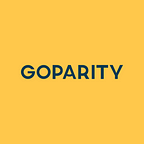Naturally raised fish in Algarve, a sustainable alternative to intensive fishing 🐟
NaturaFish’s first site is a 19-ha, salt-water, natural-pond farm in the Alvor estuary, in the Algarve southern province of Portugal. The farm’s ponds are part of the estuary and benefit from the natural water renovation occurring with the tidal exchange. Salinity levels, water renovation, biodiversity, nutrition, weather, and other environmental conditions are all ideal for the farming of European seabass and gilthead seabream, which, as wild fish, are a part of the estuary ecosystem.
The project will have a total investment of 7,6M€, from which 1,23M€ were secured by the non-refundable MAR2020 Program, 1,97M€ by a convertible debt from BlueCrow Capital, 2M€ from long-term bank financing, 150K€ from a GoParity campaign, and the remaining through equity.
The Impact 💙
A sustainable alternative to intensive fishing that is creating jobs in a region that is highly dependent on tourism.
Marine biodiversity protection: the fish ponds are old, converted salt ponds dug in the ground and built with native materials. The facilities were designed to blend with the natural environment of the estuary’s ecosystem, mindful of the local flora and fauna, including the farm’s neighboring birds; the water released back into the estuary is rich in nutrients that promote the development of microalgae that feed the shellfish farmed elsewhere in the estuary and provides nutrients as head of a complete chain.
Animal well-being: the fish swim freely in large ponds where they grow naturally as wild. Water oxygen levels are carefully monitored and controlled. Supplemental feed (in addition to the live feed that comes in naturally with the tidal exchange) is delivered automatically, following a careful plan that takes into account various factors, such as size, lifecycle stage, climate, and growth. Different feed formulas are used in response to different pathological risks. Water quality, the main driver of disease prevention, is carefully monitored. Special techniques are used to cause minimal stress during harvest.
Alternative to the import of fish raised in high-density cages: at the moment, around 90% of the seabass and seabream consumed in Portugal is imported, primarily from large-scale aquaculture production in Greece, Spain, and Turkey. This industrial-scale aquaculture, using high-density cages offshore, although efficient, does not meet minimum standards of sustainability and animal welfare.
17 new jobs in a region that is highly dependent on seasonal tourism.
The return: a 2-year loan at a 5% annual return 💰
By investing € 300, you will receive € 23,19 in gross interest throughout the next two years. You can simulate what you would receive by investing in different values here.
One month after the campaign is fully funded, you will receive your first payment of interest (€ 1,25). From then on, during the grace period of capital (the first 12 months), you will receive monthly payments corresponding to the same amount.
On month 13, you will receive your first payment of capital and interest (in a total of € 25,68). After that, you will receive the same amount until the end of the project, 2 years after the campaign is fully funded.
In the end, you will have received € 23,19 in interest, from which € 6,49 is tax that will be withheld automatically. You can invest now using this link.
